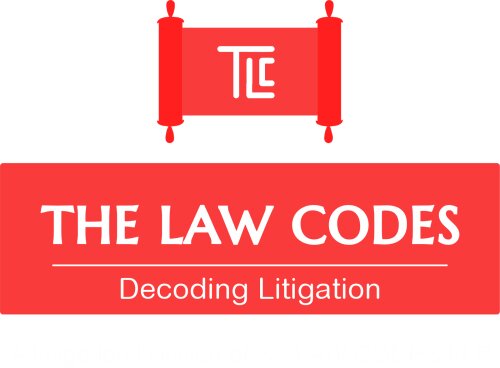Best Education Law Lawyers in Chandigarh
Share your needs with us, get contacted by law firms.
Free. Takes 2 min.
List of the best lawyers in Chandigarh, India
About Education Law in Chandigarh, India
Education Law in Chandigarh, India, is a specialized area of legal practice focusing on the myriad of regulations, policies, and legal provisions governing the education sector. This includes matters related to the rights of students, the responsibilities of educational institutions, the obligations of educators, and the implementation of educational policies both at the state and national levels. Chandigarh, as the capital city of two states, Punjab and Haryana, abides by educational laws enacted by both state governments and the Union Government, given its unique status as a union territory.
Why You May Need a Lawyer
Individuals or institutions may require legal assistance in Education Law for several reasons. Common scenarios include disputes over school admissions, issues related to school regulations and compliance, legal actions resulting from disciplinary measures, challenges related to education rights for children, and advocacy for policy or legislative change within the education sector. Additionally, educators and administrators might need legal help regarding employment issues or institutional liabilities.
Local Laws Overview
The legal framework governing education in Chandigarh involves a complex interplay of central acts such as the Right to Education Act, state-specific education policies, rules set by educational boards like the CBSE and ICSE, and local regulatory norms. Key aspects include ensuring access to free and compulsory education for children up to the age of 14, regulation of private and public educational institutions, and adherence to educational standards for curriculum and infrastructure.
Frequently Asked Questions
1. What is the Right to Education Act?
The Right to Education Act, 2009 mandates free and compulsory education for children aged 6 to 14 in India. It sets standards for educational institutions and seeks to improve educational access and quality across the country.
2. Can a school refuse admission?
While schools have admission criteria, refusing admission on discriminatory grounds is generally unlawful. Policies should comply with the Right to Education Act and other relevant regulations.
3. What rights do parents have in school matters?
Parents have the right to be informed about school policies, participate in school management committees, and ensure their children's right to quality education is upheld.
4. How are private institutions regulated?
Private institutions must adhere to state-specific rules, maintain certain standards for education quality and infrastructure, and often follow guidelines set by recognized education boards.
5. What legal actions can be taken against unfair school practices?
Parents or guardians can approach the District Education Officer or state education board with complaints, and legal action can be pursued through civil courts if necessary.
6. How do laws address bullying in schools?
Bullying is addressed through institutional policies for student welfare, guidelines against harassment, and disciplinary actions in line with education department directives.
7. Are there laws regarding school fees hikes?
Fee hikes in private schools are subject to state government regulations, requiring approval by appropriate authorities to prevent unjustifiable increases.
8. How can teachers address employment grievances?
Teachers can raise employment-related grievances through internal mechanisms, teacher unions, and legal forums if contractual terms or employment laws are violated.
9. What is the legal stance on homeschooling?
While not common, homeschooling is permissible in India but must ensure adherence to basic education standards. Its legal standing is primarily guided by broad interpretations of education laws.
10. How are students with disabilities protected under education law?
Special provisions under the Rights of Persons with Disabilities Act, 2016 ensure inclusive education and require schools to accommodate and facilitate learning for students with disabilities.
Additional Resources
Several resources can be invaluable for those seeking advice or more information on Education Law in Chandigarh. These include the District Education Office, State Education Boards of Punjab and Haryana, the National Council of Educational Research and Training (NCERT), and legal aid societies specializing in education-related issues.
Next Steps
If you require legal assistance in Education Law, it is advisable to consult with a specialized lawyer or legal firm experienced in the field. For initial advice, you may contact local legal aid societies, educational desks within governmental bodies, or law firms offering complimentary consultations. Gathering relevant documentation and a clear understanding of your case will be crucial for effective legal proceedings.
Lawzana helps you find the best lawyers and law firms in Chandigarh through a curated and pre-screened list of qualified legal professionals. Our platform offers rankings and detailed profiles of attorneys and law firms, allowing you to compare based on practice areas, including Education Law, experience, and client feedback.
Each profile includes a description of the firm's areas of practice, client reviews, team members and partners, year of establishment, spoken languages, office locations, contact information, social media presence, and any published articles or resources. Most firms on our platform speak English and are experienced in both local and international legal matters.
Get a quote from top-rated law firms in Chandigarh, India — quickly, securely, and without unnecessary hassle.
Disclaimer:
The information provided on this page is for general informational purposes only and does not constitute legal advice. While we strive to ensure the accuracy and relevance of the content, legal information may change over time, and interpretations of the law can vary. You should always consult with a qualified legal professional for advice specific to your situation.
We disclaim all liability for actions taken or not taken based on the content of this page. If you believe any information is incorrect or outdated, please contact us, and we will review and update it where appropriate.












